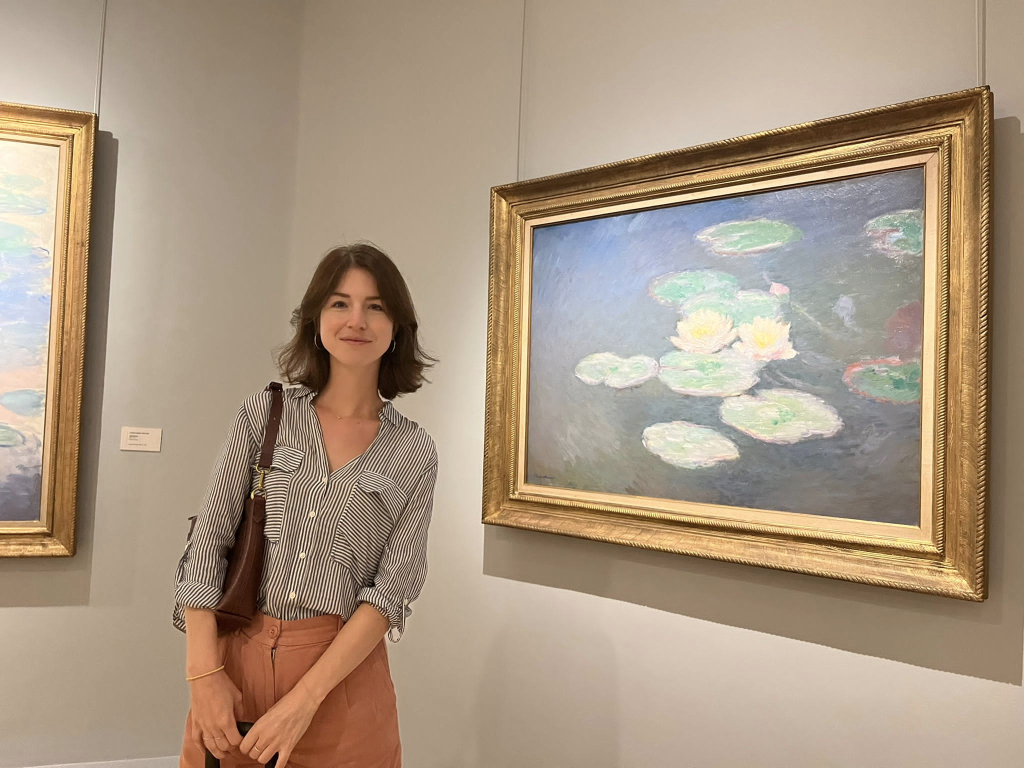Introduction
I grew up in Hoboken, New Jersey, across the Hudson River from downtown Manhattan. I completed a BA in Comparative Literature and History of Art and Architecture at Brown University in 2015, followed by an MPhil in European and Comparative Literatures and Cultures at the University of Cambridge in 2016. I spent two years teaching high school history in Connecticut before returning to Cambridge to pursue a PhD in French with funding from the Gates Cambridge Scholarship programme. I joined Queen’s as a Career Development Fellow in French in the autumn of 2022.
Teaching
I teach French Literature, with a focus on the sixteenth and seventeenth centuries, across the first-year course and FHS. I also teach translation into English.
Research
My research demonstrates a preoccupation with the relationship between communication and power in early modern French literature. My doctoral thesis explores Michel de Montaigne’s conception in the Essais of the mechanics of communication, as well as the ways communication influences and is influenced by social and political structures. Adopting a theoretical approach rooted in pragmatic language philosophy, with a particular focus on relevance theory’s cognitively-inflected account of utterance interpretation, the thesis examines Montaigne’s portrayals of communication in four contexts: conversation and civility, diplomacy, jurisprudence, and prayer and exegesis. The sustained use of a pragmatic framework to analyse Montaigne’s evocations of seemingly disparate communicative domains, typically treated separately by intellectual history, reveals patterns in his thinking that traverse these domains.
My next project, provisionally entitled ‘“Ces mots semblent être des charmes”: Speech, Authority, and Force in the Tragedies of Corneille and Racine’, explores the instrumentality of authoritative speech in seventeenth-century French tragedy. Homing in on the speech of monarchs and oracles in particular, it considers how these figures take advantage of, or circumvent, communicative conventions to influence and construct social and political realities. A pragmatics-oriented analysis of forceful speech offers a new means of comparing and contrasting the canonical works of Corneille and Racine. The project also incorporates works by their contemporaries, including Catherine Bernard and Jean Rotrou, to offer an analysis of how monarchical and oracular speech operate in the broader realm of seventeenth-century theatrical theory and practice.
Publications
‘A Message from the Margins: The Role of the Infante in Corneille’s Le Cid’, French Studies, Volume 74, Issue 4(2020), 519-535. https://doi.org/10.1093/fs/knaa166.
‘Words, Meaning and Force: The Placebo Effect in Montaigne’s Essais and Vair’s Des Charmes’, Montaigne Studies 29 (2017), 213-224.
‘“Le plus fructueux et naturel exercise de nostre esprit”: Conversation et domaine public dans les œuvres de Montaigne, Guazzo, et Castiglione’, Bulletin de la Societé internationale des amis de Montaigne, 73 (2021), 199-212.
